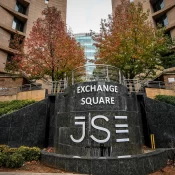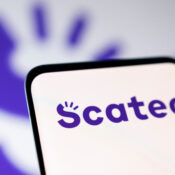
VIDEO: Scholar criticizes media and UN for biased coverage of the DR Congo conflict
Bojana Coulibaly, a conflict discourse researcher and language analyst, claims that biased reporting has skewed the narratives surrounding the conflict in eastern Democratic Republic of the Congo, downplaying atrocities against Congolese Tutsi populations.
Born in Bosnia-Herzegovina, Coulibaly experienced the fighting that followed Yugoslavia’s dissolution in 1992. She and her family arrived in France as political refugees after fleeing through refugee camps in Austria and Italy as teenagers. She finished her secondary schooling there and then obtained a PhD in African Studies with a focus on discourse and stylistic analysis.
After first concentrating on Anglophone Africa, Coulibaly’s scholarly work subsequently extended to Francophone areas, with a focus on the identity reconstruction of post-colonial African communities.
She has long been interested in the 1994 Genocide Against the Tutsi, which she characterized as “a climax of the contact between colonial Europe and Africa and the consequences of the colonial presence on the continent” in an exclusive interview with The New Times. Between 2021 and 2022, as the M23 conflict reappeared in eastern DR Congo, her interest in the Great Lakes region grew.
She claimed to have received texts containing strong hate speech about Congolese Tutsis, claiming that they are Rwandans, foreigners, traitors, and the enemy.
Coulibaly compares the “Hamitic ideology” that fueled the 1994 Genocide against the Tutsi to this hate speech. Echoes of the Hamitic myth, which depicts the Tutsi as foreigners and colonists, can be found. Particularly on social media, I noticed comparable aspects in eastern Democratic Republic of the Congo.
According to Coulibaly, “nothing was reported on it despite mounting evidence of atrocities, including lynchings and people being burned alive.” Neither human rights organizations nor civil society organizations nor the UN were covering it. Alice Nderitu, the former UN Under-Secretary-General for Genocide Prevention, was the only one who did something about it.
She criticized the reports of the UN Group of Experts for being prejudiced and superficial. According to Coulibaly, “they always evaluate violence as coming from one side, but their conclusions don’t match the realities on the ground.”
“Despite the lack of information and on-the-ground investigations by researchers or institutions from the United States, France, and Europe, the M23 rebel group was targeted by various reports,” she continued.
Regarding her work, she remarked, “It’s easy to spot bias when you spend 20 years studying texts.” “Some academics who were regarded as subject-matter experts in the area displayed blatant subjectivity while never providing an explanation for why certain crimes were occurring. Their reporting was obviously pro-Kinshasa and anti-Rwanda, and it lacked perspective.
She clarified that certain academics and the Congolese government decided to blame M23 for initiating the conflict by taking up arms in November 2021.
However, M23 members informed me that they had engaged in discussions with the Congolese government for 14 months before to the Congolese army’s offensive when I looked through their archives and spoke with them. Only in March 2022 did M23 strike back, she claimed.
Coulibaly also asked why, despite being the only armed organization with explicitly expressed political complaints, M23 was not included in peace talks. The DR Congo was home to more than 200 armed factions at the time. However, the confrontation was referred to as “the M23 war,” which unjustly singled out one faction for blame.
Other armed groups without a political platform were invited to the Nairobi peace process, but M23 was the only one left out, she continued. In contrast to the ADF (Ugandan terrorist group), which is known to carry out terrorist attacks, Kinshasa later designated M23 a terrorist organization, despite the fact that there is no proof that they target civilians.
To get a more complete picture, she visited Congolese refugees in Rwanda, internally displaced persons in the Democratic Republic of the Congo, and M23 commanders in North Kivu in 2023.
She spoke with M23 political leader Bertrand Bisimwa in December and January, inquiring about the group’s complaints, the UN Group of Experts’ midterm report’s allegations of linkages to ADF, and Kinshasa’s refusal to engage in discussion.
“Decades of exclusionary ideology are reflected in the current discourse,” she said. It became evident from talking to residents of Masisi and Rutshuru that this goes beyond recent occurrences. This conflict’s origins date back more than 30 years, even before the Tutsi Genocide in 1994. Deeply ingrained is the mindset that dehumanizes Congolese Tutsis.
“French media like France 24, TV5 Monde, RFI, and at some level Jeune Afrique, tend to actually espouse this narrative, either they’re just repeating what the other said without any proper investigation or they are forced to follow a certain discourse,” Coulibaly said in his criticism of certain French media outlets.
In order to counter hate speech and divisionism, she emphasized the necessity of political education and legal action. It is necessary to properly educate people against divisionism, denounce hate speech, and make it a crime. That must occur not only in Rwanda but also in Burundi and the Congo.
“Instead of these narratives that are only escalating conflict, we need to refocus on research ethics and promote truth,” she continued.
All Categories
Recent Posts
Tags
+13162306000
zoneyetu@yahoo.com


